This site is supported by our readers. We may earn a commission, at no cost to you, if you purchase through links.
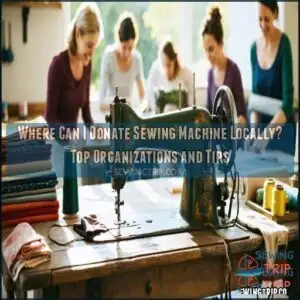 You can donate your sewing machine to several places that’ll give it a second life. Goodwill and Salvation Army are always good bets, where your trusty machine can find a new home.
You can donate your sewing machine to several places that’ll give it a second life. Goodwill and Salvation Army are always good bets, where your trusty machine can find a new home.
Local libraries, senior centers, and community colleges often welcome these creative tools with open arms. Churches frequently use donated machines for quilting projects that comfort those in need.
The Sewing Machine Project specifically collects and distributes machines to vulnerable communities. Before parting with your faithful stitching companion, make sure it’s clean and in working order—a little TLC goes a long way in making your donation truly meaningful.
Table Of Contents
- Key Takeaways
- Donating Sewing Machines
- Where to Donate Sewing Machines
- Sewing Machine Donation Guidelines
- Organizations Accepting Sewing Machines
- Benefits of Sewing Machine Donations
- Preparing Sewing Machines for Donation
- Alternative Donation Options
- Tax Benefits of Donating Sewing Machines
- Supporting Local Communities
- Finding Local Donation Centers
- Frequently Asked Questions (FAQs)
- Conclusion
Key Takeaways
- You’ll find many great donation options including Goodwill, Salvation Army, The Sewing Machine Project, women’s shelters, schools, and community centers – all places where your machine can get a second life.
- You’ll need to ensure your machine is in good working condition before donating, including cleaning it properly and including all essential accessories like the foot pedal, power cord, and manual.
- You can receive tax benefits when donating to qualified 501(c)(3) organizations, but make sure you get proper documentation and receipts for your donation.
- Your donated sewing machine creates ripple effects in communities by providing income generation opportunities, supporting self-sufficiency efforts, and enabling skill development for those in need.
Donating Sewing Machines
Donating a sewing machine is a simple way to help others while clearing out space at home.
Giving away your unused sewing machine transforms clutter into opportunity while making room for what matters most.
You’ll be surprised how this small act can lead to big changes for someone in need.
Benefits of Donating Sewing Machines
Donating a sewing machine is like planting a seed for growth.
You empower individuals to learn new skills, express creativity, and even build an income.
It supports sewing programs and enriches communities while reducing waste.
A sewing machine donation turns something unused into a tool for opportunity, proving that even small acts can make a big difference!
Eligible Recipients of Sewing Machines
Shelters, schools, and libraries often welcome sewing machine donations.
Sewer sewing programs teach valuable skills, while school sewing classes inspire creativity.
Some sewing machine nonprofits focus on disaster relief sewing or prison sewing programs.
Libraries provide sewing machine access to communities.
Your gift can support sewing programs and help create lasting opportunities through sewing machine charities and organizations.
Where to Donate Sewing Machines
When you’re ready to give your trusty sewing machine a new home, you’ll find plenty of worthwhile destinations willing to accept your donation.
Looking locally first often creates the biggest donation impact while minimizing your carbon footprint.
Here are five excellent places to donate your used sewing machine:
- The Salvation Army – Most locations accept working machines and offer convenient pickup services
- Goodwill Industries – Drop off your machine at any donation center for tax incentives
- Local women’s refuges and shelters – Your machine can provide valuable skills training
- Community centers and maker spaces – Many libraries now host sewing programs
- The Sewing Machine Project – This specialized charity guarantees your machine reaches those in need
Don’t forget to call ahead to confirm a local charity’s current needs and drop-off procedures.
Online platforms like Freecycle can also connect your machine directly with neighbors in need.
Sewing Machine Donation Guidelines
You’ll need to make sure your sewing machine is in good working condition with all parts included before donating it.
Most organizations prefer portable tabletop models under 30 pounds, with manuals and accessories attached.
Your beloved machine can stitch up new opportunities for someone else.
Machine Condition Requirements
Your sewing machine’s condition matters more than you think when donating.
Organizations require machines in good working order without missing parts. Most places won’t accept units weighing over 30 pounds due to portability needs.
Cam-less models are preferred for their simplicity. Before you donate your used sewing machine, check that it runs smoothly, has all essential components, and meets weight restrictions.
Your donation helps others only if it’s truly usable and in a condition that is beneficial, so ensuring it is in good working order is crucial.
Required Accessories
Your sewing machine’s essential accessories guarantee it’s ready for its next owner when you donate it.
Most organizations require:
- The foot control and power cord (without these, the machine is just a paperweight)
- Original feet and attachments that came with your machine
- The instruction manual or a printed copy, which helps new users learn operation
Consider replacing a worn sewing machine foot before donating.
Don’t forget the slide table if your model came with one, as these are crucial for a complete donation, ensuring the machine is fully functional and ready for its next owner with all necessary accessories.
Packing and Shipping Instructions
Now that you’ve gathered all necessary accessories, you’ll need to prepare your machine for its journey to a new home.
Proper packing guarantees your donation arrives safely.
| Packing Step | Materials Needed | Tips |
|---|---|---|
| Inner protection | Bubble wrap | Wrap all removable parts separately |
| Secure placement | Original box (if possible) | Use foam inserts for stability |
| Double boxing | Larger outer box | Leave 2" of space for cushioning |
| Shipping preparation | Packing tape, labels | Include insurance options for valuable machines |
For fragile items, consider using high quality cushioning for added protection.
Remember: accurate address information prevents delivery delays when you donate your used sewing machine.
It is crucial to have proper packing to ensure the machine arrives at its destination safely.
Using high quality materials and following the provided tips will help in achieving this goal.
By doing so, you ensure a safe delivery of your donation.
Organizations Accepting Sewing Machines
You’ll find several organizations ready to give your trusty sewing machine a second life, including The Salvation Army, Goodwill, and local women’s shelters.
Your donation clears space in your home and also helps someone learn valuable skills that could lead to income opportunities or creative hobbies.
The Salvation Army
The Salvation Army gladly accepts your sewing machine donations, helping stitch together hope for those in need.
You’ll find drop-off locations near you, or they can arrange a free pickup service—super convenient.
Your donated machine supports their "Others" program, creating employment opportunities and community impact.
Plus, donations are tax-deductible, so you’ll save money while making a difference.
The Salvation Army accepts machines in good working condition, along with fabric and other crafting supplies.
Goodwill
While the Salvation Army is a great option, Goodwill also welcomes your sewing machine donations. They accept popular brands like Singer, Brother, and Janome in working condition.
Your donation to Goodwill makes a difference:
- Your old machine becomes someone’s new creative outlet
- You’re supporting job training programs in your community
- You’ll get a tax deduction while decluttering your space
Simply drop off at your local Goodwill or schedule a pickup through their ReSupply service.
Local Women’s Refuges
Many women’s refuges welcome your sewing machine donations, offering a lifeline to abuse survivors.
These shelters often run skill-building workshops where residents learn to mend or create clothing. Your donation directly supports self-sufficiency efforts in a safe environment.
Call local shelters near you to confirm their needs before dropping off. Community outreach programs within these refuges transform your unused machine into a tool of empowerment and healing.
Benefits of Sewing Machine Donations
Donating a sewing machine helps others build skills, earn income, and support their families.
It’s a simple way to make a big difference in your community while clearing out your space.
Income Generation Opportunities
When you donate your sewing machine, you’re providing more than just equipment—you’re offering a pathway to economic empowerment.
Your donation can create transformative income generation opportunities through:
- Micro-enterprise creation for vulnerable families
- Skill-based training programs in underserved communities
- Sustainable livelihood development for women entrepreneurs
- Community development initiatives that boost earning ability
One simple donation can help someone stitch together a brighter financial future.
By donating, you are supporting transformative income generation and contributing to sustainable livelihood development.
Self-Sufficiency Efforts
Your donated sewing machine becomes a powerful tool for self-reliance.
A donated sewing machine threads opportunity into the fabric of someone’s future.
When you donate a sewing machine, you’re giving someone the chance to learn marketable skills that last a lifetime.
These machines help people repair their own clothes, create items to sell, and develop confidence through skill development.
Many women’s shelters and community centers use these donations to teach economic empowerment through sustainable livelihoods.
Sewing can provide critical family income, offering financial stability.
Your old machine can stitch together someone’s brighter future.
Community Support
Your donated sewing machine empowers entire communities.
Beyond helping individuals, you’re fueling local initiatives that bring neighbors together through sewing circles and skill-building workshops.
A single machine creates ripple effects—volunteer opportunities emerge, social inclusion blossoms, and neighborhoods transform.
Sewing equipment donations support programs that teach valuable trades while fostering connections.
When you donate to sewing machine organizations, you’re not just giving away an item—you’re stitching together the fabric of your community, creating a sense of social inclusion, and enabling skill-building workshops.
Preparing Sewing Machines for Donation
You’ll want to make sure your trusty sewing machine is clean and in good working order before sending it off to its new home.
Don’t forget to include all the essential parts like the foot control, power cord, and manual so your donation can start changing lives right away.
Cleaning and Maintenance
Before donating your sewing machine, give it some TLC so it can serve its new owner well.
Proper cleaning and maintenance guarantees your machine will be ready for its next chapter.
- Remove all lint with a small brush, especially around the bobbin area
- Oil mechanisms according to your sewing machine manual
- Check thread tension and adjust if needed
- Replace the needle with a fresh one
Gathering Required Accessories
Now that your machine is squeaky clean, it’s time to round up all the essentials. Every donated sewing machine should include its foot control, power cord, slide table, and original feet.
Don’t forget the manual if you have it! Organizations greatly appreciate when you include needles and a basic maintenance kit too.
Consider including essential cutting tools for fabric preparation. Think of it as packing a suitcase—your machine needs all its accessories to be truly helpful in its new home.
Packing and Shipping
Now that you’ve gathered all accessories, let’s pack your sewing machine properly.
Use double boxing for extra protection when shipping to donation locations. Wrap your machine in bubble wrap and secure it with tape.
Consider insurance options if you’re mailing it. Clearly write the address label on your package.
Most donation centers recommend including $40 to cover shipping costs. Don’t forget to use proper packing materials to prevent damage, and remember to handle your machine with care for safe shipping.
Alternative Donation Options
You’ll find plenty of options beyond just donating your sewing machine, from giving away fabric and craft supplies to local schools to finding reuse centers that give old items new life.
Your dusty sewing basket might contain someone else’s treasure, and dropping off those forgotten craft supplies can free up your space while helping creative minds in your community, and by doing so, support a cause that brings new life to old items.
Fabric and Craft Supply Donations
Now that your sewing machine is ready for donation, don’t forget about those fabric scraps and craft supplies taking up space.
Craft Reuse Centers, Make & Mend, and ReCreative Denver welcome clean, usable art supplies.
Local guilds, school programs, and even prison sewing programs accept fabric donations too.
Before you donate craft supplies, call ahead to confirm what’s acceptable.
Your leftover materials could spark creativity in your community!
Reuse and Recycling Centers
When your sewing machine doesn’t find a home elsewhere, reuse and recycling centers can be your final option.
Most centers have specific acceptance policies for electronic items like sewing machines. Before dropping off your machine, call ahead to verify their material sorting process and repair programs.
These centers create positive community impact while offering environmental benefits through proper sewing machine recycling—turning your unwanted item into someone else’s treasure instead of landfill waste.
Charity Resellers
When reusing isn’t possible, charity resellers offer another great option.
These organizations accept your sewing machine, sell it in their shops, and use profits to fund community programs.
The donation process is typically straightforward—just drop off your machine at Goodwill or similar charities.
You’ll receive a tax deduction while supporting sustainable practices.
Your old sewing machine transforms into valuable resources that benefit local communities, creating a lasting resale impact beyond the initial donation.
Tax Benefits of Donating Sewing Machines
You’ll lighten your tax load while helping others when you donate your sewing machine to qualified organizations.
Just remember to ask for a receipt of your donation so you can claim it as a deduction on your tax return.
Tax Deductible Donations
By donating your old sewing machine, you can score a tax break while helping others.
Contributions to qualified 501(c)(3) organizations are tax deductible when you itemize deductions on your return.
The donation valuation typically ranges from $15-$88, depending on the machine’s condition.
Keep in mind that deduction limits apply, and you can only claim the resale value—not what you paid for it originally, which is an important consideration for your tax deductions.
Receipt and Documentation
To maximize your tax benefits after donating a sewing machine, you’ll need proper documentation.
Always keep these records handy:
- Detailed receipt showing the donation date and organization name
- Photos of your sewing machine before donation
- Appraisal paperwork for machines valued over $500
- IRS Form 8283 for donations exceeding $500
- Record of any donation limits that affected your contribution
Don’t leave money on the table—good record keeping turns your charitable donation into valuable tax savings!
Supporting Local Communities
You’ll make a big difference in your hometown when you donate your unused sewing machine to local shelters, schools, or community centers.
Your old machine can help others learn useful skills and create items they need, turning your dusty garage treasure into someone else’s fresh start.
Local Shelters and Hospitals
When you’re looking to make a difference in your community, consider donating your unused sewing machine to local shelters and hospitals.
These organizations often run valuable programs that benefit various groups in need.
| Organization Type | Sewing Program | Benefits | What They Accept | How to Donate |
|---|---|---|---|---|
| Homeless Shelters | Clothing Repair | Promotes self-sufficiency | Working machines with accessories | Call ahead to confirm |
| Women’s Shelters | Skill-building workshops | Empowers residents | Portable machines | Drop-off by appointment |
| Children’s Hospitals | Patient Sewing Activities | Therapeutic healing | Lightweight machines | Contact volunteer services |
| Animal Shelters | The Snuggles Project | Creates comfort items for animals | Simple machines | Arrange pickup |
| Community Hospitals | Therapy Sewing | Supports recovery | Various models | Donation drives |
Your sewing machine donation can transform lives through shelter sewing programs and hospital textile needs.
These donations can support community driven efforts similar to mask-making initiatives.
Schools and Libraries
Throughout your community, schools and libraries often enthusiastically welcome sewing machine donations.
Your old machine can spark creativity in home economics classes or theater departments for student designers.
Local libraries now offer maker spaces where everyone gets access to equipment they couldn’t otherwise afford.
Many school programs rely on charitable donations to teach practical skills.
Before donating, call ahead to confirm they’re accepting equipment availability is limited, as equipment availability is often a concern, and practical skills are the goal.
Community Centers and Maker Spaces
Community centers and maker spaces have become creative hubs where your old sewing machine can start a second life.
These local donation centers offer public access to equipment that many can’t afford to buy.
You’ll find your donation helps build community through skill sharing programs, where volunteers often handle equipment maintenance.
Many sewing machine charity programs within these spaces directly support neighbors learning valuable skills right in your neighborhood.
Finding Local Donation Centers
You’ll find plenty of places ready to give your trusty sewing machine a second life if you know where to look.
Check online directories, ask friends for recommendations, or simply call local organizations directly to find the perfect new home for your machine.
Online Search and Directories
Now that you’ve considered how donating your sewing machine can benefit your community, let’s find those local donation centers.
Online search engines are your best friends here! Simply type "donate sewing machine near me" into your favorite search engine or visit donation websites like The Sewing Machine Project’s directory.
Don’t forget to check local listings, social media groups, and review sites for places that might welcome your beloved machine.
Word of Mouth and Referrals
While online directories work well, never underestimate the power of word of mouth in finding places to donate your sewing machine.
Your neighbors, friends, and colleagues often know local donation opportunities that websites miss.
Personal referrals create trusted donor connections through:
- Local quilting or sewing groups who maintain referral networks
- Neighborhood social media groups where local champions share needs
- Community center bulletin boards where donation requests quietly wait
Ask around—someone in your circle likely knows exactly where your machine is needed most.
Be sure to ask if they know of any shops offering maintenance and tune-ups for donated machines, which can help ensure your donation is well-maintained and effective in its new home, providing valuable resources to those in need.
Contacting Local Organizations Directly
Picking up the phone is often the most direct route to finding the perfect home for your sewing machine.
Call local charities to ask about their specific needs and donation hours before heading out. Most organizations have clear item acceptance policies and can tell you if they’re currently taking machines.
Some places might even offer volunteer opportunities alongside your donation. Don’t hesitate to reach out to learn more about their donation hours and how you can contribute, making it a great chance to explore local charities.
Frequently Asked Questions (FAQs)
Who would take an old sewing machine?
Like old threads finding new fabric, your sewing machine can find new life.
Goodwill, Salvation Army, The Sewing Machine Project, women’s shelters, schools, libraries, and maker spaces would gladly take your machine.
Can you donate a sewing machine?
Yes, you can donate your sewing machine.
The Sewing Machine Project, Goodwill, Salvation Army, and women’s shelters all welcome these gifts.
You’ll free up space while helping others stitch a better future.
Is there a market for old sewing machines?
Dusty treasures in your attic can become someone’s creative companion.
You’ll find collectors, crafters, and vintage enthusiasts keen to buy old sewing machines through online marketplaces, antique shops, and specialty forums, with vintage enthusiasts being a key market.
Does anyone take fabric donations?
Many places accept fabric donations including assisted living facilities, colleges with design programs, churches, scouting groups, prisons with sewing programs, and sewing guilds.
Organizations like Stitch for a Cause and Warm Up America welcome your fabric too.
How to donate industrial sewing machines?
Just like finding a new home for a gentle giant, donating industrial sewing machines requires specific channels.
Contact textile schools, vocational centers, or specialized organizations like The Sewing Machine Project who’ll gladly accept your powerful workhorses.
Can I donate antique sewing machines?
Antique sewing machines can be donated to The Sewing Machine Project, museums, schools, or craft centers.
You’ll need to check if they’re accepting vintage models, as some prefer working machines only.
Are international sewing machine donations accepted?
Yes, international sewing machine donations are accepted by many organizations.
You’ll need to check with specific charities about shipping requirements and costs.
Some may prefer a financial contribution instead due to transport logistics, as this can be more efficient than handling international donations.
Do organizations repair donated machines?
Most donation centers inspect and fix machines before distributing them.
You’ll often find volunteers who’ll tune up your old machine, ensuring it’s ready for its new home.
Some places even welcome repair-savvy helpers!
What brands are most requested for donations?
Cream always rises to the top! Singer, Brother, Kenmore, Viking Huskvarna, and Janome are the most requested brands for donations. You’ll make a bigger impact by donating these reliable machines.
Conclusion
Finding where to donate your sewing machine is like discovering the perfect pattern—it just feels right!
Your machine can stitch new opportunities for others through Goodwill, Salvation Army, or specialized organizations like The Sewing Machine Project.
Remember to clean and test your machine before donating, whether you choose a local shelter, library, or community center, your contribution creates ripples of creativity and self-sufficiency.
Where can I donate sewing machine? Now you know—and someone’s life will be better for it, which is the ultimate good feeling.

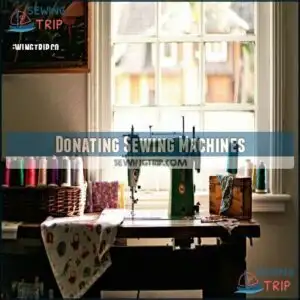
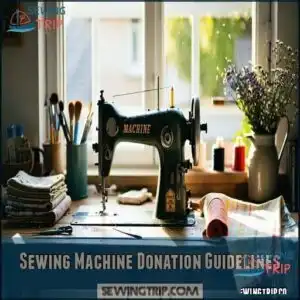
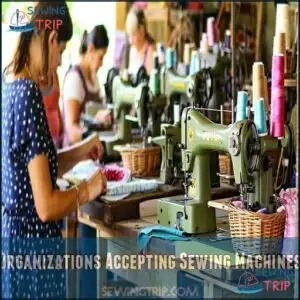
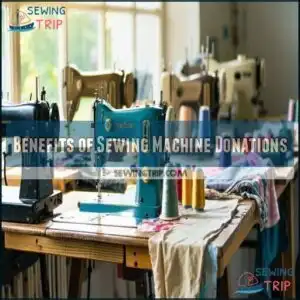
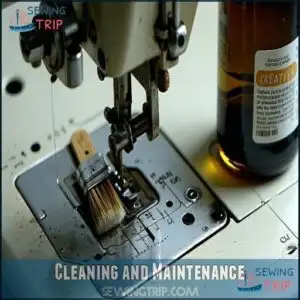
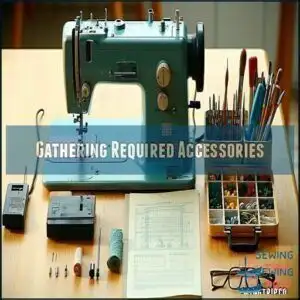
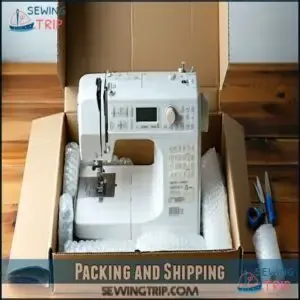
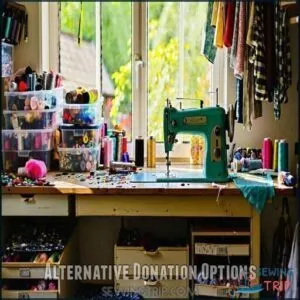
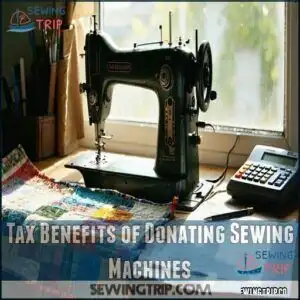
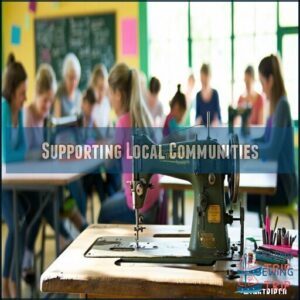
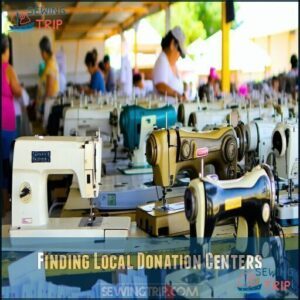

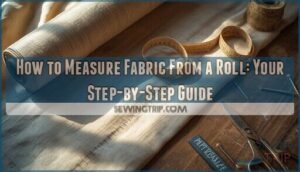
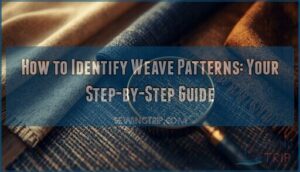



Nancy krysevig
January 11, 2026 at 06:13 PM
I have two sewing machines no longer used. Will give away. Must pick up.